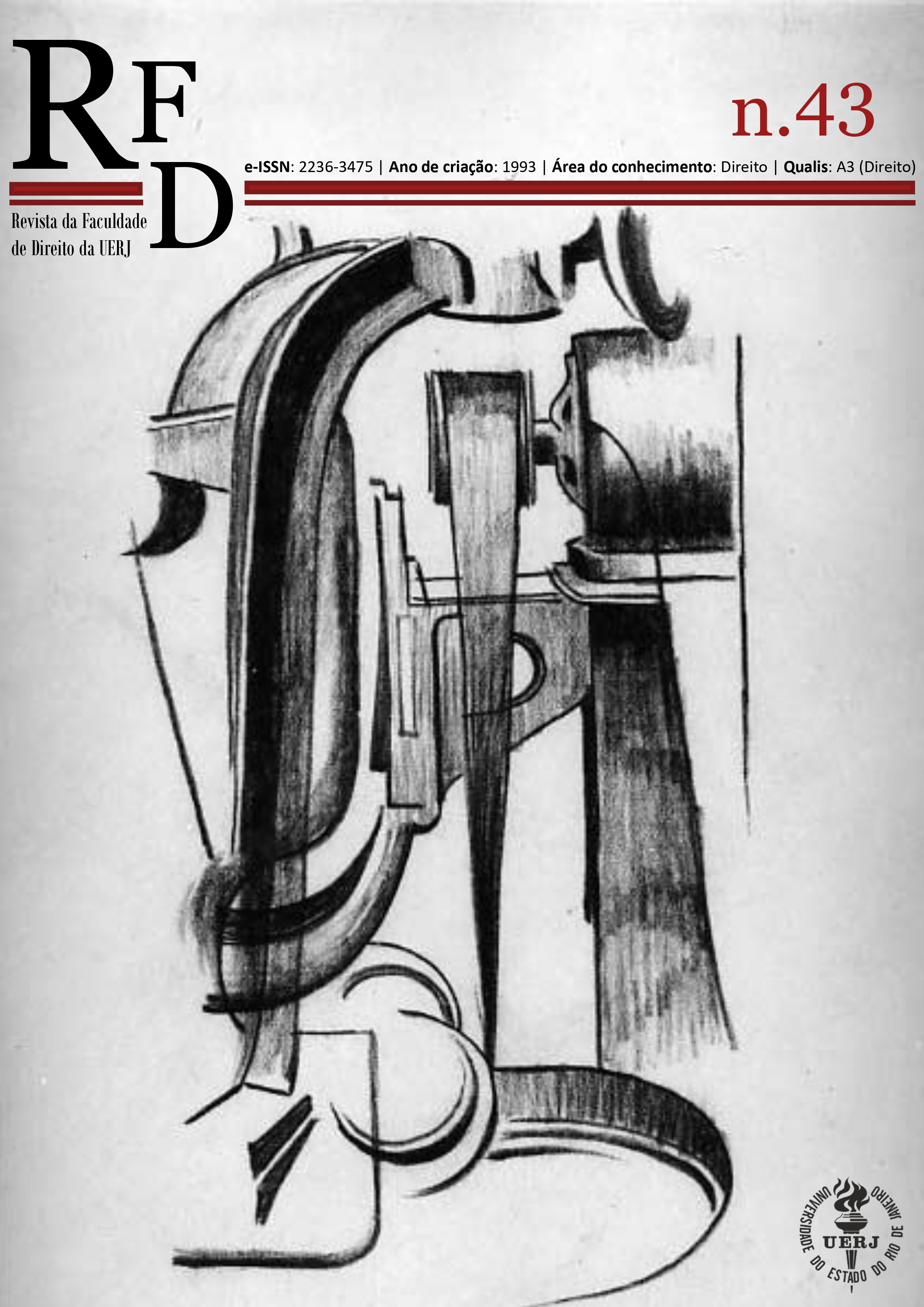HUMOROUS EXPRESSION AND CIVIL LIABILITY
THE HUMORIST’S HARMFUL CONDUCT IN THE LIGHT OF THE NORMATIVE GUILT
DOI:
https://doi.org/10.12957/rfd.2024.59637Keywords:
Humor, Freedom speech, Civil liability, Normative guilt, Limit of humorAbstract
The humor is present since the most remote in human history, but its free expression has entered a collision course with the personality rights, fact that denotes through the growth of civil liability of humourists for alleged injuries to honor, intimacy, privacity of others. In the absence of safe discretion for measuring harmful conduct of the comedians face the personality rights of others, often the Judiciary has sought to resolve disputes based on personal tastes of the contente of humourous message propagated to delimitate, then, the existence of a reimbusable damage, method with which it does not fit. To the same extent, it apperas that the weighting techniche lacks safe and univocal criteria to delimit the predominance of the opposing rights under analysis The methodology used here makes use of bibliographic technique and a deductive approach insofar as it proposes the analysis of humorist’s conduct according to normative guilt, pointing out doctrinal criteria and applicable jurispudence that foster the consctruction of a conduct standard for the humor professional, whose civil liability can only be attributed if there is a deviation from this standard. The analysis of harmful humorist’s conduct in the light of normative guilty should promote greater legal certainty and predictability in the analysis of cases of civil liability of humor professionals.
Keywords: Humor. Freedom speech. Civil liability. Normative guilt. Limit of humor.
Downloads
Published
How to Cite
Issue
Section
License
Copyright
oArticles published in the Revista da Faculdade de Direito da UERJ (RFD/UERJ)
The copyrights of the published articles belong to the Revista da Faculdade de Direito da UERJ (RFD/UERJ). Total or partial reproduction of the articles is allowed as long as the source is cited.
oPartial reproduction from other publications
Submitted papers that contain parts of text extracted from other publications must obey the specified limits to ensure originality of the submitted work. Plagiarism in all its forms constitutes unethical behavior and is unacceptable.
It is recommended to avoid reproduction of tables and illustrations from other publications. The article that contains reproduction of one or more tables and/or illustrations from other publications will only be sent for analysis if it is accompanied by written permission from the copyright holder of the original work for the specified reproduction in the Revista da Faculdade de Direito da UERJ (RFD/UERJ). The permission must be addressed to the author of the submitted work. Under no circumstances will the Journal of the Law School of the State University of Rio de Janeiro (RFD/UERJ) and the authors of the papers published in this journal transfer the rights thus obtained.
•The refused studies will be returned to the authors, if asked.

The Revista da Faculdade de Direito is licensed under a Creative Commons Atribuição 4.0 Internacional License.
This work is licensed under a Creative Commons 4.0 Attribution-No Derivation License.
This license allows copying and redistribution of the material in any medium or format for any purpose, even commercial, provided that the original authorship is acknowledged.










